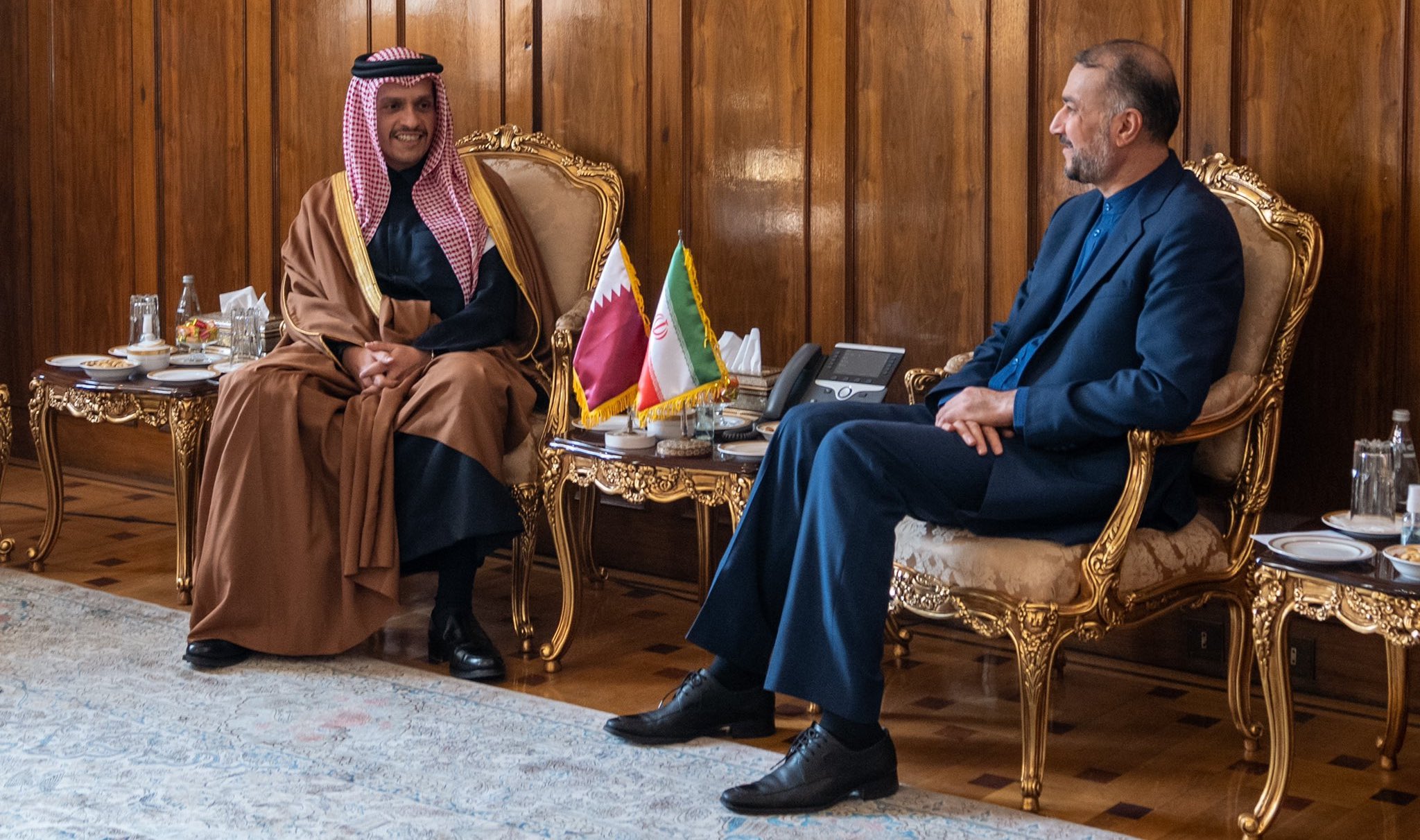“It is not surprising that some regional powers are stepping in to de-escalate the situation,” an analyst told Doha News.
Qatar’s foreign minister delivered a message from parties involved in the nuclear talks during a one-day visit to Tehran on Sunday, Iranian officials confirmed.
Sheikh Mohammed bin Abdulrahman Al Thani carried the message to his counterpart Hossein Amir-Abdollahian during a meeting in the Iranian capital in a bid to push for the return of talks to revive the Joint Comprehensive Plan of Action (JCPOA).
“Today, we received messages from the other parties of the JCPOA [talks] through the foreign minister of Qatar. We thank Qatar for its goodwill to bring all parties to the final steps of the agreement,” Amir-Abdollahian said.
Sheikh Mohammed said Qatar urges all parties to return to the agreement.
“It is a good opportunity to solve the issues related to the nuclear deal and to find suitable conditions to return to the agreement,” the Qatari top diplomat said, adding that he also conveyed the messages of United States to Tehran.
Due to significant disparity between Tehran and Washington, the negotiations in Vienna intended to revive the 2015 nuclear accord between Iran and world powers have been at a standstill since August of last year.
Recent Iranian protests and rumours that Tehran sent drones to Russia for use in the Ukraine crisis have heightened tensions between the two countries, and US officials have publicly stated that the nuclear discussions are no longer on the table, according to reports.
Describing the colossal state the region is in as of now, Dr. Trita Parsi, Executive Vice President of the US think tank Quincy Institute told Doha News: “The region is faced with a very dangerous situation right now.”
“The risk of escalation and war has risen significantly in the last couple of weeks. Though geopolitical circumstances have shifted quite dramatically since 2015, the consequences of a regional war will likely remain the same,” added Dr Parsi.
Referring to Qatar’s heavy mediation role in the region, specifically with regards to maintaining a communication portal between the JCPOA parties, Dr Parsi told Doha News: “As such, it is not surprising that some regional powers are stepping in to de-escalate the situation.”
The Iranian foreign minister stressed that Tehran has “always welcomed regional dialogue” to cement “strong and stable” cooperation with all regional countries.
He also mentioned “great developments” in Iran’s relations with its Gulf neighbours and stated that messages had been exchanged between Iran and Bahrain “through an intermediary.”
However, Amir-Abdollahian said relations with Ukraine cannot be characterised as “hostile,” adding that the first round of negotiations between the two parties took place in Oman and welcoming the second.
He also made remarks about Saturday night drone assaults on a military facility in the province of Isfahan in central Iran, describing it as a “effort by Iran’s enemies to disrupt the country’s security.”
A US official said on Sunday that Israel appears to have been responsible for an overnight drone attack on an Iranian military facility.
Iran asserted that drones it had shot at a target in the military sector close to the central city of Isfahan had been intercepted, and that no one had been hurt and no substantial damage had been done.
It would be the first attack by the Zionist regime against Iran since Benjamin Netanyahu became prime minister again last month.
“As diplomacy between the west and Iran has come to a near standstill, not just because of the deadlock on the nuclear side but also because of Iran’s support for Russia in its invasion of Ukraine, the role of mediation conducted by regional players has become increasingly important,” Dr Parsi told Doha News.
“So it is not surprising to see that the foreign minister of Qatar is deeply involved in diplomacy between the US and Iran. It would also not be surprising if the message he carried to Tehran was in regard to the drone attacks in Esfahan yesterday,” he noted.







